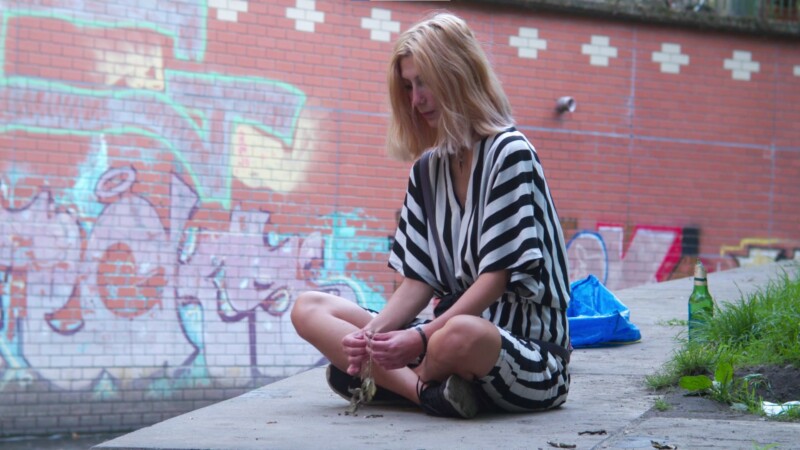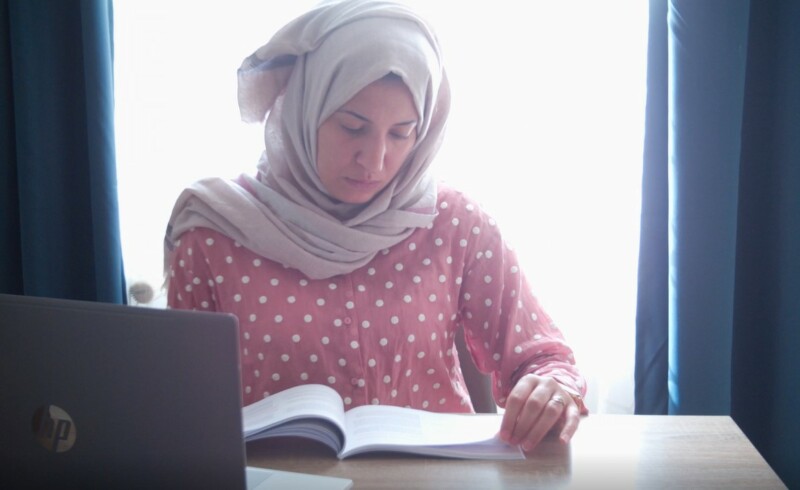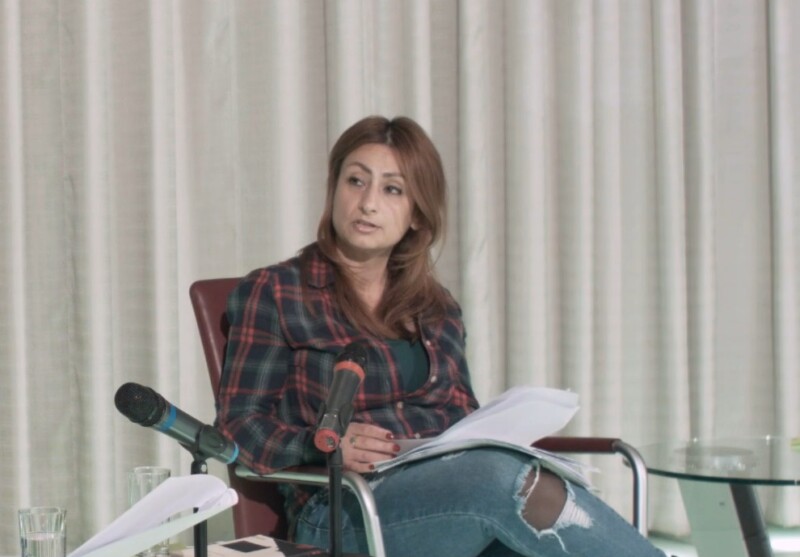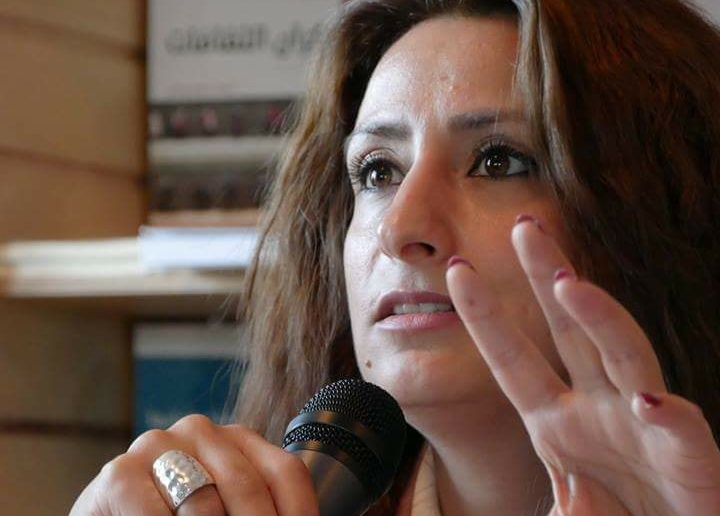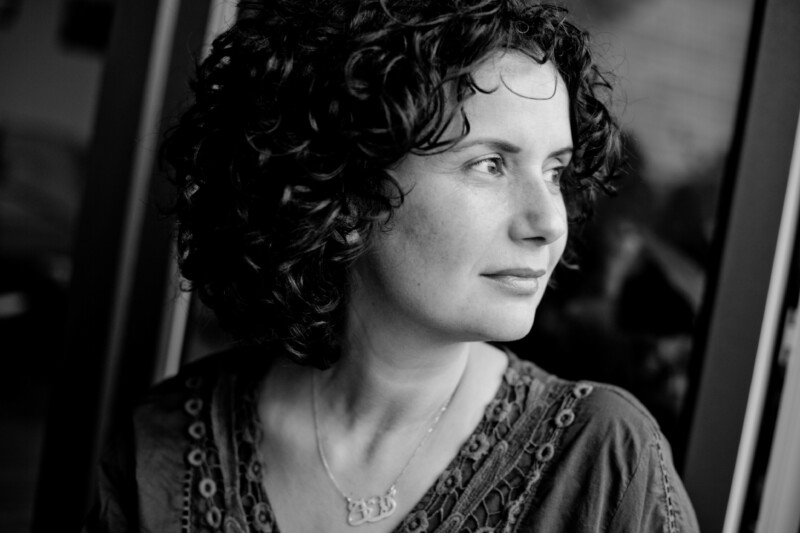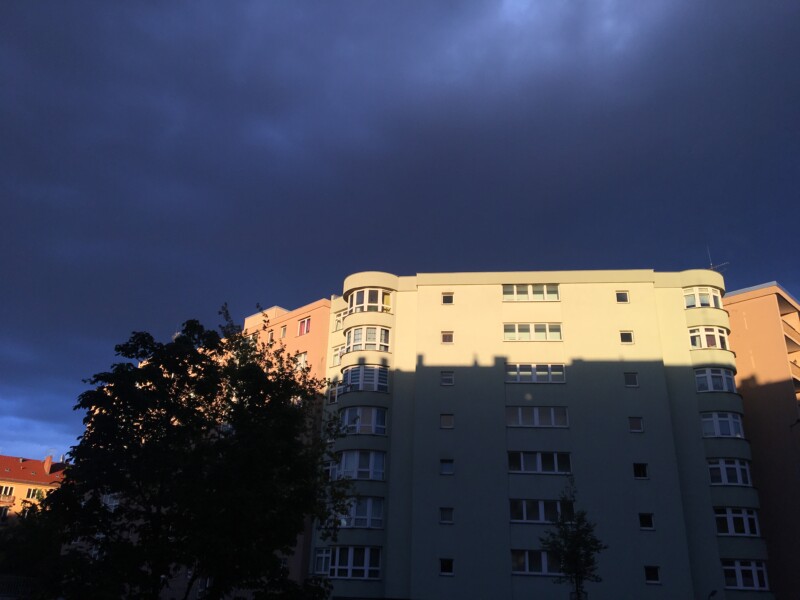
“Zu Berlin habe ich tausend Geschichten in meinem Kopf. Ich gebe zu, dass ich hier viele Fesseln gesprengt und die ersten Buchstaben meiner Persönlichkeit geschrieben habe. Heute erinnere ich mich an die Zeit, als ich neunzehn Jahre alt war. Ich erinnere mich an die große Freude, als ich nach Mitternacht ausging und nur einen billigen Schlafanzug anhatte, von schlechter Qualität und sehr bunt. Mit ungekämmten Haaren ging ich hinaus und lief auf einem der Plätze Berlins herum.
Heute blicke ich zurück und amüsiere mich über mein damaliges Verhalten. Manchmal denke ich, dass es falsch war, was ich tat und dass ich ein wenig verrückt war. Dann sage ich mir wieder: Das ist doch mein gutes Recht, zu tun und zu lassen, was ich will. Es ist mein Recht, das diejenigen, die die Normen festlegen und sich der Menschen habhaft machen, mir geraubt haben.
‘Det is Berlin.’
Als ich daran dachte, saß ich in der Bahn direkt hinter der Führerkabine. An einer bestimmten Station stieg der Bahnführer aus, um einem Menschen mit Behinderung beim Einsteigen zu helfen. Seltsamerweise ließ er ihn dann aber doch nicht einsteigen, da er nicht verstanden hatte, wohin dieser Mensch möchte. Der Bahnführer brüllte plötzlich laut durch den Lautsprecher: ‘Zurückbleiben! Zurückbleiben!’ Die Frau, die neben mir saß, fragte ihren Mann, was mit dem Bahnführer los sei. Ihr Mann versuchte ihr eine Erklärung für das Verhalten des Bahnführers zu geben: ‘Det is Berlin.’
Die Bahn setzte die Fahrt fort. Ratter, ratter, ratter… Durch die wiederholte Reibung von Rad und Schiene kamen die Gedanken in meinen Kopf zurück. Ratter, ratter, ratter… Du musst deutsch lernen! Ratter, ratter, ratter… Du musst das Geheule der Bomben und den Tod vergessen! Ratter, ratter, ratter… Du musst dich akklimatisieren und integrieren! Ratter, ratter, ratter… Du musst eine Arbeit finden, studieren und die Prüfungen bestehen! Ratter, ratter, ratter… Du musst…
Aber was ist mit dem Kulturschock? Was ist mit den Visionen, den Alpträumen, den Sorgen und schlaflosen Nächten? Was hat das alles zu bedeuten? Ratter, ratter, ratter… Wir, die Kinder des Krieges, werden wie eine Ware billig gehandelt! Von den Kriegstreibern, ihren Mittelsmännern und auch der Presse direkt danach. Nämlich von denen, die unsere Narrative, unsere Bilder und Schicksale missbrauchen. Was haben wir davon? Nichts! Denn wir bekommen nichts von dem, was wir am Notwendigsten brauchen. Was wir brauchen ist Stabilität und Sicherheitsgefühl. Aber was ist mit unserer psychischen Sicherheit?
Hier wartet der Zug nicht auf dich
Wenn ich die Sprache der Finanzen und der Zeit von früher beherrschen würde, hätte ich in meinem Werdegang sicherlich etwas anders gemacht. Aber ich war damals mit anderen Dingen beschäftigt und suchte einen anderen Sinn. Ich kann den Wert dessen, was ich tat, heute nicht bestimmen. Heute reden alle von Werten und Prinzipien, aber wer hält sich noch an Werte und Prinzipien?
Det is Berlin. Ja, tatsächlich, das ist Berlin. Hier wartet der Zug morgens nicht auf dich, wenn du verschlafen hast. Keiner interessiert sich dafür, ob du absichtlich den Morgen verschlafen hast oder etwas anderes im Sinn hattest. Keiner wird oder möchte es erfahren.
Det is Berlin. Die Sirenen in Berlin verstummen nicht, auch wenn die Straßen leer sind oder die Nacht fortgeschritten ist. Diese Stadt braucht unentwegt einen Retter.
Als wären wir Aliens
Ich habe aufgehört, die Jahre zu zählen, damit ich die Last weniger spüre. So konnte ich mir die ‘Integration’ leichter machen. Ich löschte mein Haus aus meinem Gedächtnis und beseitigte noch dazu alle Erinnerungen, die mir im Weg standen. Dort war die Zeit langsamer und leichter. Ich könnte sogar heute sagen, dass die Zeit, ohne dass ich es bemerkt habe, stehen blieb. Die bittere Wahrheit, die mir ins Gesicht springt, ist der Tod. Dort würde ich umgebracht werden. Auf die eine oder die andere Weise. Hier werde ich dazu motiviert, mich selbst umzubringen, mit dem Unterschied, dass ich hier die Wahl habe, auf welche Weise ich es tue.
Und jetzt, nach dem bitteren Kampf zwischen dem Hier und Dort entschied ich mich, mit meinen 25 Jahren in aller Ruhe hier zu leben und mich von den Konsumenten unserer Erzählungen fernzuhalten. Von denjenigen, die über uns reden, als wären wir Aliens oder Fremdlinge, die auf dem europäischen Kontinent gelandet sind, um als Versuchskaninchen missbraucht werden zu können.”
“I have a thousand stories in my head about Berlin. I admit that I threw of a lot of chains here and that I spelled out the first letters of my personality. Today I remember the time when I was nineteen years old. I remember the great joy when I went out after midnight and wore only cheap pyjamas, of poor quality and very colorful. With uncombed hair I went out and walked around in one of the squares in Berlin.
Today I look back and amuse myself about my behavior at that time. Sometimes I think that what I did was wrong and that I was a little crazy. Then I say to myself again: It’s my right to do and not to do what I want. It is my right that those, who set the standards and get hold of people, have robbed me of.
‘This is Berlin.’
When I thought of that, I was sitting on the train directly behind the driver’s cab. At a certain station, the train driver got off to help a disabled person get on. Strangely enough, however, he did not let him get on because he did not understand where this person wanted to go. The train driver suddenly shouted loudly through the loudspeaker: ‘Stay back! Stay back!’ The woman sitting next to me asked her husband what was wrong with the driver. Her husband tried to give her an explanation for the behavior of the driver: ‘Det is Berlin.’ [‘This is Berlin’.]
The train continued its journey. Rattling, rattling, rattling… Through the repeated friction of the wheel and rail, the thoughts came back into my head. Rattling, rattling, rattling… You have to learn German! Ratter, ratter, ratter… You must forget the howling of the bombs and death! You have to acclimatize and integrate! You have to find a job, study and pass the exams! Gobble, gobble, gobble! You must…
But what about the culture shock? What about the visions, the nightmares, the worries and sleepless nights? What does it all mean? Rattle, rattle, rattle… We, the children of war, are traded cheaply like a commodity! By the warmongers, their middlemen and also the press immediately afterwards. Namely by those who abuse our narratives, our images and our fates. What do we get out of it? Nothing! Because we get nothing of what we need most. What we need is stability and a sense of security. But what about our psychological security?
Here the train does not wait for you
If I had mastered the language of finance and the times of yesteryear, I would certainly have done something different in my career. But at that time I was busy with other things and was looking for a different meaning. I cannot determine the value of what I did today. Today everyone talks about values and principles, but who still sticks to values and principles?
‘Det is Berlin.’ Yes, actually, that is Berlin. Here the train doesn’t wait for you in the morning when you’ve overslept. Nobody cares if you overslept the morning on purpose or had something else in mind. No one will or wants to know.
This is Berlin. The sirens in Berlin don’t go silent, even if the streets are empty or the night is late. This city constantly needs a savior.
As if we were aliens
I have stopped counting the years so that I feel the burden less. This way I could make ‘integration’ easier for me. I erased my house from my memory and also removed all memories that stood in my way. There, time was slower and lighter. I could even say today that time stopped without me noticing it. The bitter truth that jumps into my face is death. There I would be killed. In one way or another. Here I am motivated to kill myself, with the difference that here I have the choice of how I do it.
And now, after the bitter struggle between the here and there, I decided, at the age of 25, to live here in peace and quiet and stay away from the consumers of our stories. From those who talk about us as if we were aliens or strangers who landed on the European continent to be abused as guinea pigs.”
The anonymous author’s text deals with the feeling of othering that she experiences in Germany. “We, the children of war, are traded cheaply like a commodity! By the warmongers, their middlemen and also the press immediately afterwards. Namely, by those who abuse our narratives, our images and our fates,” writes the anonymous author, thereby criticizing the media debate about refugees. They – refugees – need protection and stability, she writes, and they don’t get this in Germany. She also deals with the topics of loneliness in the metropolis (“Here the train doesn’t wait for you in the morning if you’ve overslept”) and traumas of war and flight, for which she can find no channel in Germany for coming to terms with, constantly under pressure of having to “integrate” well into German society.
More about the project “Peace between Here and There”
“Peace between Here and There” is a writing workshop project of the Friedenskreis Syrien. The association advocates a peaceful and cooperative exchange between people and creates exchange platforms for a constructive dialogue.
The texts have already been published in the taz in a modified form. The project was carried out in cooperation with bi’bak, Start with a Friend (SwaF) and Multaka (Treffpunkt Museum) in Berlin and is supported by the Frauen ID Projekt within the Kultur macht Stark Förderprogramm / PB and BMBF.
In seven days of workshops, the participants, led by the Syrian author Kefah Ali Deeb, explored writing methods. Part of the project were visits to several Berlin museums, some of which are reflected in the women’s stories. The result are texts about the new living environment in Berlin, about home and about the “Peace between Here and There”. More about the project can be found on the kohero magazine page (in German).
M.Sh.: “Det is Berlin.”, published in German in kohero Magazine, created in the context of the project “Peace between Here and There”. Published here with kind permission of kohero Magazine.
Translation from German into English by Minor Kontor.
